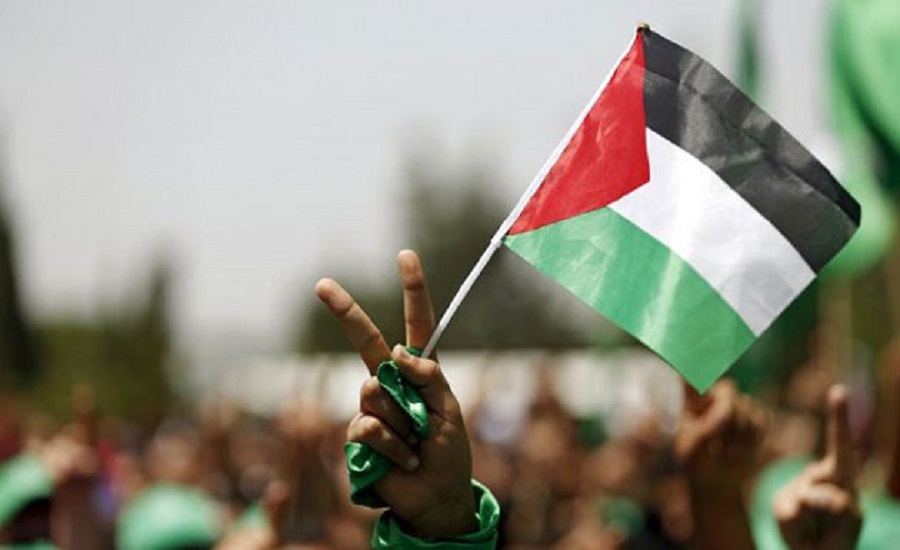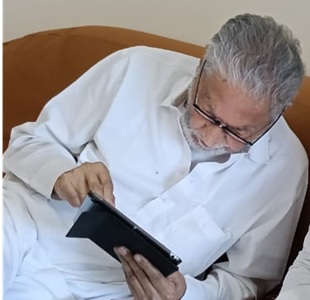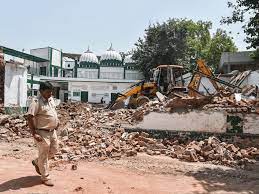Nevertheless, Nato, after digesting former Warsaw Pact countries (Poland, Czechoslovakia, Hungary, Bulgaria, Romania), deliberately courted Ukraine that borders Russia. It proved the last straw for Putin. He unleashed his formidable arsenal against Ukraine.
China sagely advised “Russia and Ukraine to resolve the issue through negotiation”. Along with India, it bolstered Russia’s veto in the Security Council with an abstention. India’s permanent representative to the UN T.S. Tirumurti declared pompously that “the contemporary world order has been built on the UN Charter, international law and respect for the sovereignty of territorial integrity of states”. He continued: “Dialogue is the only answer to settling differences and disputes, however daunting that may appear at this moment.” In every situation, he meant, except the implementation of UN Resolution no. 47 over the Kashmir question.
Putin’s action in Ukraine uncorked pungent rhetoric from former World War II allies. UK’s PM Boris Johnson called him “a dictator”, US President Biden a “criminal”. G7 countries said Putin “put himself on the wrong side of history”. Former president Trump, who never studied history, called Putin “a genius”.
On Feb 24, Boris Johnson aspiring to Churchillian heights thundered: “He [Putin] has attacked a friendly country without any provocation and without any credible excuse; innumerable missiles and bombs have been raining down on an entirely innocent population; a vast invasion is underway by land by sea and by air.” His description applied equally to the West’s interventions in Afghanistan, Iraq, Syria, Libya, Lebanon, Grenada, Vietnam, etc.
Johnson disinterred a phrase used by his predecessor Neville Chamberlain in September 1938, in which Chamberlain described the disputed Sudetenland as a “quarrel in a faraway country, between people of whom we know nothing”. Johnson insisted that Ukraine was different. It stood on the doorstep of Europe. As the G7 leaders put it, Putin has “reintroduced war to the European continent”. Wars in faraway places are kosher; wars on the mainland of Europe are not.
In 1965, during our war with India, US ambassador Walter P. McConaughy called upon President Ayub Khan. He urged a ceasefire — otherwise, there was a likelihood of a world war. Ayub’s adviser M.M. Ahmed retorted: “What you mean is that the US would become involved. For us, it is already a world war.”
At present, Ukraine and Russia are embroiled in their own World War III. In his half-hour of need, Ukrainian President Zelensky turned to the club he sought to join: “I asked the 27 leaders of Europe whether Ukraine will be in Nato, I asked directly. Everyone is afraid, does not answer.” Nato offered him paper promises, but no troops.
The US has committed $950 million in military assistance. Germany will supply Ukraine with 1,000 anti-tank weapons and 500 Stinger surface-to-air missiles, the Netherlands 50 Panzerfaust-3 anti-tank weapons, the UK lethal defence weapons. Even neutral Sweden is sending 5,000 anti-tank rockets to thwart the Russian juggernaut.
Zelensky — a former actor — has become a Ukrainian Forrest Gump. He has been offered asylum by the US. Unlike Afghanistan’s Ghani, Zelensky has opted to remain at home. He has agreed to negotiate with Russia, even offering to abjure Nato.
For Putin, it is too little, too late. Russia’s Iron Curtain has descended across Europe, again.






0 Comments